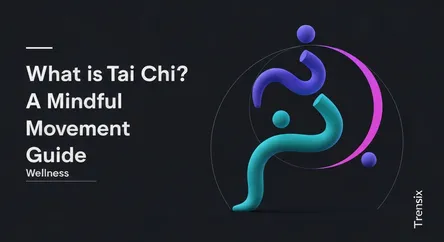Wellness
What is Tai Chi? A Mindful Movement Guide

Discover Tai Chi, the ancient mind-body practice. Learn how its gentle, flowing movements can reduce stress and improve your overall well-being.
What is it?
Tai chi is an ancient Chinese tradition now practiced as a graceful, low-impact form of exercise. Often described as "meditation in motion," it combines slow, flowing movements, deep breathing, and a meditative state of mind. Though it originated as a martial art, its modern focus is on promoting harmony between mind and body by cultivating the body's internal energy, or "qi." The practice consists of a series of carefully prescribed postures performed in a continuous, gentle sequence, making it accessible for people of all ages and fitness levels.
Why is it trending?
Tai chi's popularity is surging due to a growing global focus on holistic wellness and mindfulness. As people increasingly seek ways to combat the pressures of a fast-paced world, tai chi's unique blend of physical exercise and mental relaxation is highly appealing. Its health benefits are supported by a growing body of scientific research, which has documented improvements in mobility, mental health, and various chronic conditions. This evidence-based validation, combined with its gentle approach, makes it a popular choice for sustainable, long-term health and stress management.
How does it affect people?
The practice of tai chi offers significant benefits for both mental and physical health. For the mind, it is proven to reduce stress, anxiety, and depression by promoting a sense of calm and well-being. The mindful focus on breath and movement improves concentration and emotional regulation. Physically, it enhances balance, flexibility, and muscle strength, which is particularly effective in reducing the risk of falls among older adults. Regular practice can also help manage chronic pain, lower blood pressure, and improve sleep quality, contributing to overall health.